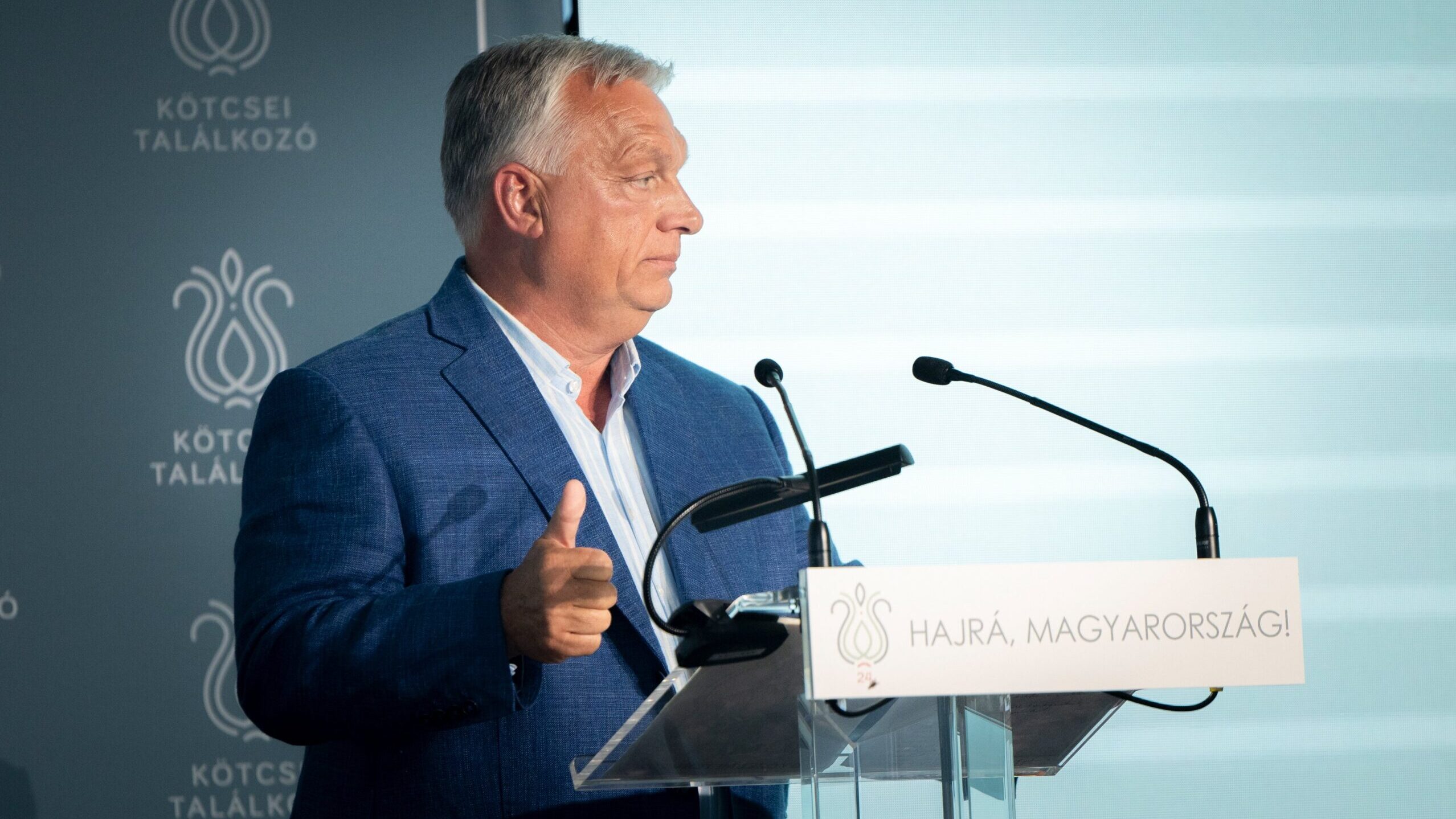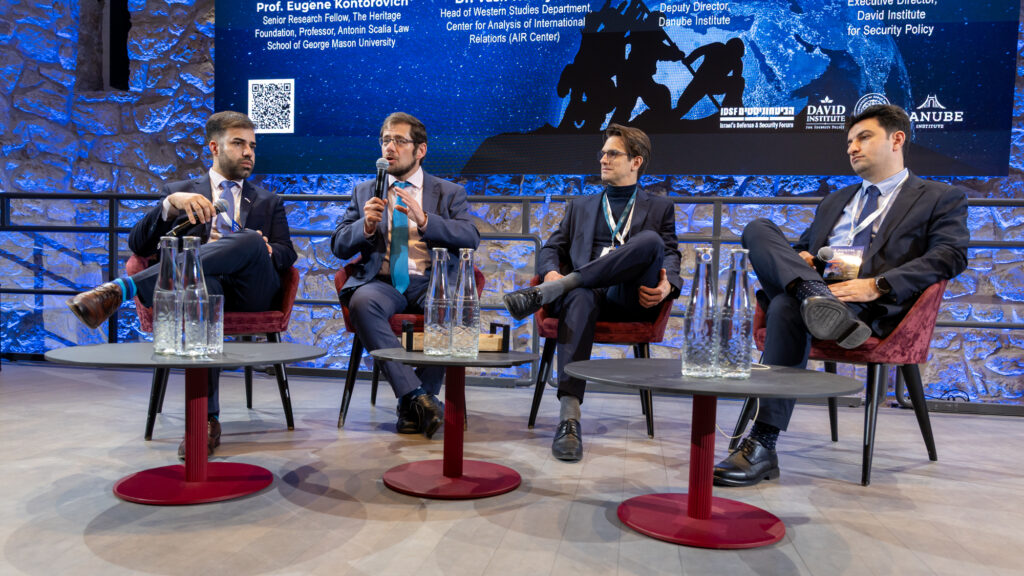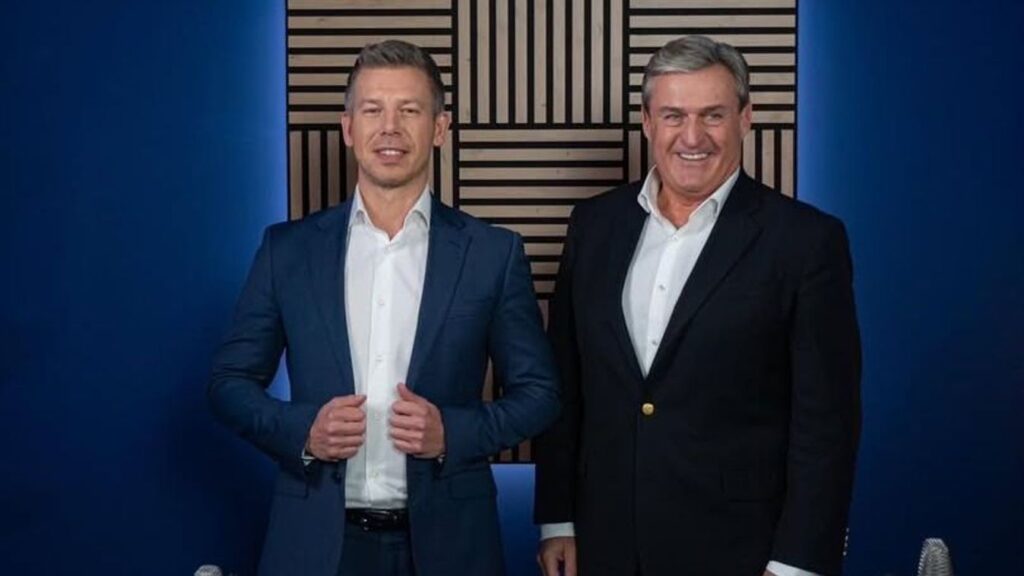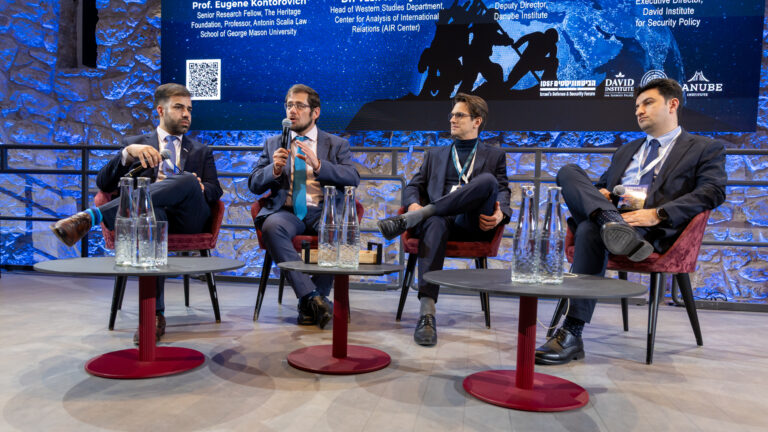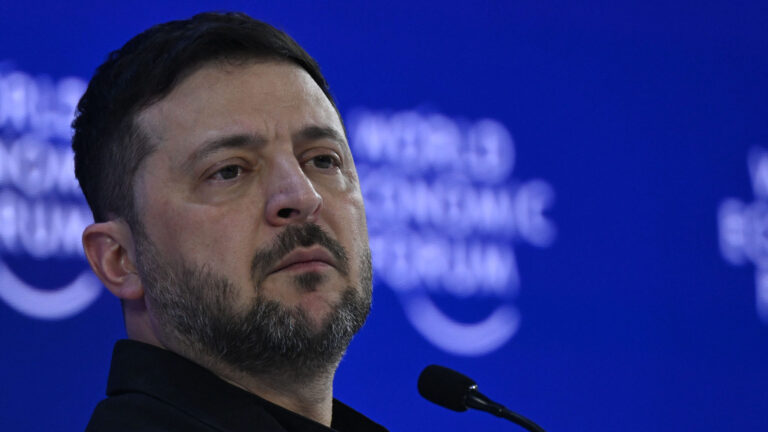Hungarian governing party Fidesz held its annual political season opener in Kötcse on Sunday, 7 September, where Prime Minister Viktor Orbán outlined his victory plan and vision for the coming months. For the first time, the event was broadcast live, allowing the public to hear his words directly rather than through media leaks. While the picnic traditionally serves as a show of domestic political strength, this time Orbán focused primarily on international developments.
The prime minister declared that the global order is undergoing a fundamental shift and Western dominance is fading. ‘China has an unassailable advantage in demographics, technology, and capital, and is catching up militarily. The US must face the fact that Russia has won the war. This could only be stopped by the deployment of hundreds of thousands of Western troops, and no one is willing to do that,’ he said
According to Orbán, the United States will turn inward in the coming years: ‘They are dismantling the world order as we knew it. What we see is tariffs, tariffs, and more tariffs. The era of democracy export is over; from now on, it’s all about great power politics.’ He argued that Washington’s goal is to subordinate the EU economically, while Brussels maintains the war to secure its own great power position.
‘The era of democracy export is over; from now on, it’s all about great power politics’
On the war in Ukraine, Orbán stated: ‘Ukraine’s EU membership would mean war. Strategic partnership is possible, but full membership would endanger Europe.’ He added that the West has already accepted the existence of a Russian-controlled zone—‘20 per cent of Ukraine is under Russian control’—and that the debate now revolves only around demilitarized areas. Orbán urged a security deal between the European Union and Russia that would also address Ukrainian issues. According to him, the main points of such an agreement would be: no NATO or EU membership for Ukraine, but rather a strategic partnership agreement between the EU and Ukraine.
He painted a bleak picture of the European Union: ‘The EU has embarked on a path of disintegration and fragmentation, and may go down in history as the sad end of a noble experiment.’ He listed Britain’s departure and the West having ‘pushed Russia into China’s arms’ as major mistakes. Orbán sketched out a model of ‘circular Europe’: the outer ring would include countries such as the UK, Türkiye, or even Ukraine, cooperating only on military and energy security, while the inner circles would focus on the common market, common currency, and political integration.
The prime minister stressed that the Visegrád Group—a regional partnership involving Poland, Czechia, Slovakia and Hungary—could be revived: ‘Liberal oppression in Poland is nearing its end, and Babiš is ante portas. The resurrection of the V4 is a realistic possibility.’ He defined Central Europe’s mission as preserving Christian civilization and resisting Western ‘Islamisation’.
‘Orbán urged a security deal between the European Union and Russia’
Alongside foreign policy analysis, Orbán briefly turned to domestic politics. He argued that Hungary faces two paths: ‘Either we join Brussels’ policies, represented by Tisza and Democratic Coalition (DK)—bringing the migration pact, a welfare-based economy, and common war—or we stick to Fidesz’s model.’
Speaking about the victory plan ahead of the parliamentary election in 2026, Orbán stated that if the vote were held today, Fidesz would win 80 out of 106 constituencies. He emphasized that the party already has its candidates, organization, and programme in place. According to him, recent government measures—such as tax exemptions, family support schemes, housing programmes, and pension supplements—demonstrate the government’s ability to govern.
Zoltan Kovacs on X (formerly Twitter): “🇭🇺@PM_ViktorOrban: Hungary faces two strategic choices.🚆 One is the Brussels line-hitching our wagon to the EU train. It would lead to chaos and poverty.🔧 The other: holding fast to the model we’ve built over the last 12+ years. That’s our path. pic.twitter.com/8JawQht97Z / X”
🇭🇺@PM_ViktorOrban: Hungary faces two strategic choices.🚆 One is the Brussels line-hitching our wagon to the EU train. It would lead to chaos and poverty.🔧 The other: holding fast to the model we’ve built over the last 12+ years. That’s our path. pic.twitter.com/8JawQht97Z
‘We will deliver on every commitment and promise. What we say, we always do. The essence of the victory plan is this: you cannot win an election with a good programme, nor with promises kept. It takes work. The tasks must be completed,’ he said. The prime minister also announced a new national consultation on the tax-raising plans of the European Union and the Hungarian opposition.
Closing his speech, Orbán envisioned a scenario in which Fidesz wins the 2026 election, the number of ‘patriots’ doubles, and he returns to Kötcse next year to speak about how ‘Brussels was taken over’.
Related articles:

